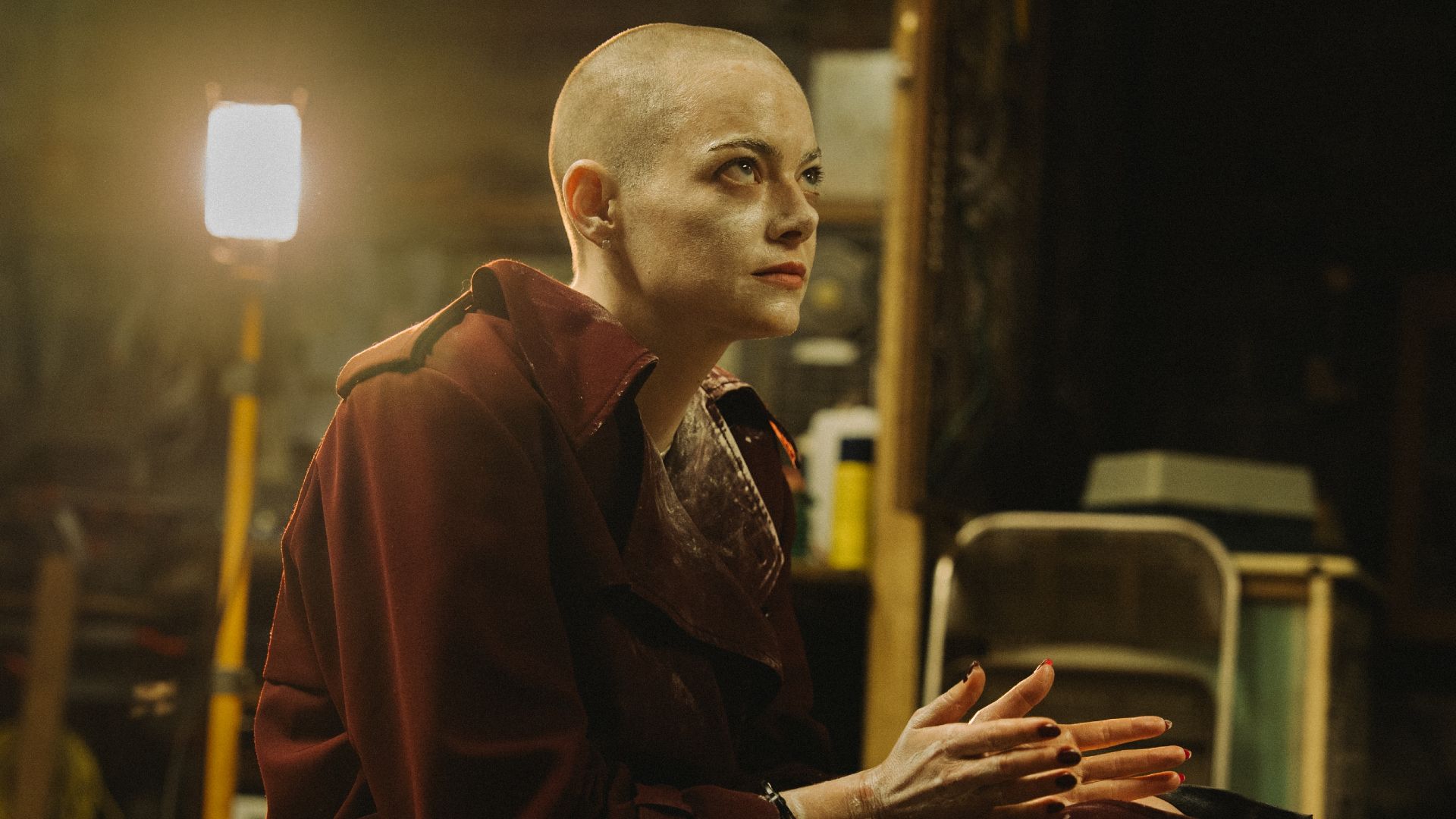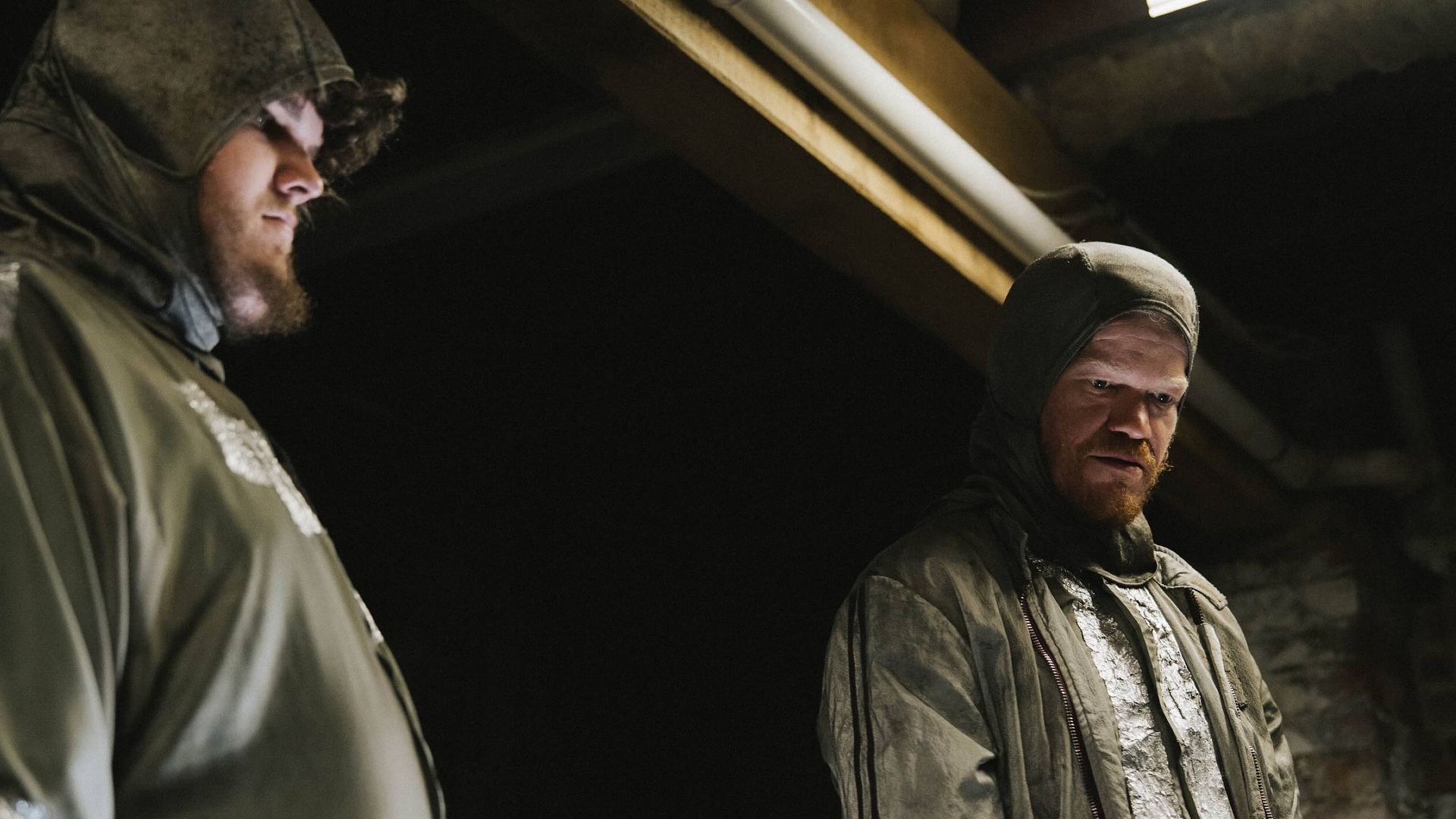
Yorgos Lanthimos’s new film, Bugonia, cleverly connects personal stories with broader political themes. He again directs Emma Stone and Jesse Plemons in this sci-fi thriller, which uses dark humor to explore issues relevant to today’s world. Following his recent film Kinds of Kindness, Lanthimos returns to a more straightforward storyline while still maintaining the unique and thought-provoking style that defines his work.
Inspired by the 2003 South Korean film Save the Green Planet! and reimagined by Will Tracy (who also wrote The Menu), Bugonia offers a modern take on the original story, exploring themes of politics, society, and what it means to exist. William Plemons delivers a compelling performance as Teddy, a beekeeper living in the countryside whose beliefs have become extreme after his mother (Alicia Silverstone) slipped into a coma—possibly due to a dangerous pesticide used by the pharmaceutical company Auxolith, where she participated in a drug trial. Convinced the CEO of Auxolith, Michelle Fuller (Stone), is actually an alien trying to destroy Earth, Teddy recruits his easily influenced cousin, Don (Aidan Delbis, a standout newcomer), to help him kidnap her.
Honestly, sometimes it’s easier to imagine those super-rich guys aren’t even human. It would explain why they seem to have so little regard for the rest of us, why they can’t seem to connect with everyday struggles. It’s a wild thought, sure, but it feels more satisfying than accepting the sad truth: they can understand, they just choose not to. They’ve built a world where most of us are just… unimportant to them. It reminds me of this company, Auxolith, in the story. It’s everywhere, like so many big corporations we know. The main character, Teddy, works for them, and his whole town basically relies on Auxolith for jobs. And when you think about it, the real conspiracy isn’t some secret alien plot, it’s how much power these companies have over everything – our jobs, where we live, even our healthcare. It’s a little scary when you break it down like that.
Jesse Plemons delivers a chilling and unsettling performance as Teddy, a character whose coldness is perfectly matched by the clever twists in the film. From the beginning, the filmmakers portray Michelle as a powerful and intimidating CEO – far more than just a polished businesswoman. She’s dedicated to intense physical training and maintains a rigorous fitness routine, making her surprisingly difficult to capture, as shown in a funny scene where Teddy and Don attempt a disguise using cheap masks. Emma Stone has always been a strong physical actress, but in both Bugonia and Poor Things, she demonstrates a remarkable control over her physicality, going beyond simple comedic effect.

Focus Features
Much of the story in Bugonia revolves around the strained interactions between Teddy and Michelle. The book also deeply examines characters like Teddy – men who struggle with their emotions and get lost in extreme online ideologies. This search for answers leads to increasing isolation, ultimately resulting in hopelessness and aggression. While Teddy genuinely believes he’s working to prove humanity’s value, his methods are filled with violence and a lack of genuine engagement with those he opposes.
Michelle’s efforts to calm things down feel fake and remind us of her first appearance: a company video where she spouts empty corporate buzzwords about diversity. She herself admits that saying the word “diversity” over and over makes it lose all meaning. Corporations haven’t historically cared about compassion; they only act caring when it benefits them – it’s like someone pretending to be human to fit in.
There are clear connections between Bugonia and Ari Aster’s Eddington, both of which seem to reflect the anxieties of our current political climate. It makes sense that Aster produced Bugonia, and that Eddington‘s screenwriter, Will Tracy, was a producer on it. Like the character Lou in Eddington, the protagonist of Bugonia appears to have suffered abuse at the hands of his father. Both characters share strained relationships with mothers who believe in conspiracies, and both are searching for purpose in a violent and uncaring world. Though their reactions—turning to conspiracy-fueled violence or joining a cult for survivors of abuse—are extreme and unsettling, it’s easy to understand and sympathize with the trauma that led them to these points. Both characters are fundamentally good people whose sense of right and wrong has been warped by systems that failed them.
As the darkly funny and violent story of Bugonia reaches its peak, it’s easy to see Lanthimos’s view as hopeless, as if he’s accepting the failure of humanity. However, the film’s title offers a different perspective. “Bugonia” refers to an old Mediterranean belief that bees could magically appear from the body of a dead animal – meaning life can emerge from death. Despite the violence and extreme ideas of the character Teddy, he ultimately believes a better world is achievable. He’s simply someone who feels lost and disconnected, like a bee separated from its hive. For bees, and maybe for people too, being alone can be fatal.
Read More
- How to Get the Bloodfeather Set in Enshrouded
- Every Targaryen Death in Game of Thrones, House of the Dragon & AKOTSK, Ranked
- 4 TV Shows To Watch While You Wait for Wednesday Season 3
- Gold Rate Forecast
- The Pitt Season 2, Episode 7 Recap: Abbot’s Return To PTMC Shakes Things Up
- 10 Movies That Were Secretly Sequels
- One of the Best EA Games Ever Is Now Less Than $2 for a Limited Time
- Best Controller Settings for ARC Raiders
- Best Werewolf Movies (October 2025)
- Goat 2 Release Date Estimate, News & Updates
2025-10-21 20:48